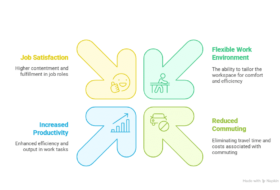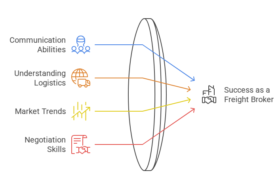Just like every industry has a core professional, the truck dispatcher is the core professional of the transportation industry.
A truck dispatcher’s job is essentially to manage freight on behalf of a carrier. That includes using load boards and personal connections to locate freight that needs to be shipped, speaking to brokers, conducting negotiations, and eventually dispatching drivers and setting up their routes. In many cases, the position also includes some back-end work like reviewing truck drivers’ logs and tracking their hours.
A truck dispatcher is often confused with a freight broker, but the two positions have different and distinct roles.
Successful truck dispatchers either work for a trucking company or run their own independent truck dispatcher service business.
If you are looking to become an independent truck dispatcher, here are some important steps you can take to become one:
1. Get Educated: The importance of education in every facet of life cannot be overemphasized.All you need is to have at least a high school diploma or GED.
2. Learn About Truck Dispatching: You cannot work in an industry you have little or no knowledge about. So, enroll for a mini course on truck dispatching. No degree in logistics or transportation are required to have the desire to work independently.
3. Develop Customer Related Skills: The core part of this skill is communication. You have to communicate with customers to now their needs and communicate with drivers to get the job done. So, build a strong customer service skill that make you empathetic, approachable and customer oriented.
4. Understand Your Core Responsibilities: Independent freight dispatchers assign loads, instruct their drivers, handle billings on behalf of their clients, and negotiate rates. An independent freight dispatcher will have to rent the necessary space and equipment to run their businesses successfully.
5. Draft A Plan of Action: Your plan of action should include your ideas on how to dispatch trucks from your office. Gather some important forms that must have in order to run your business smoothly and securely. For example, driver application requirement, and an independent truck dispatcher-carrier agreement, dispatch service rate agreement, and credit card authorization forms. In your contract forms, be clear about the activities you provide. If some services require extra fees, clearly indicate.
6. Get Your Work-Space Ready: You can decide to work from home or rent a work space; it’s all up to you. Either way, you will need to get your office ready for running your business. To set up your office, you will need a computer, printer, quality phone system, and software that can keep activities in check.
7. Promote Your Business Online: There is no business without customers. So, after putting everything in place, set up your website, and promote your business. Build a relationship with carriers and know the people around you who are also in the trucking community, partner with companies and local organizations, and invest in paid advertisements; especially social media.
Growth + Change = Opportunity! How are you going to capitalize on the opportunity as a freight broker, agent or dispatcher?
Check out our courses for becoming a Freight Broker, Agent or Freight Dispatcher! As always reach out to us with any questions we are here to help 7 days a week!








